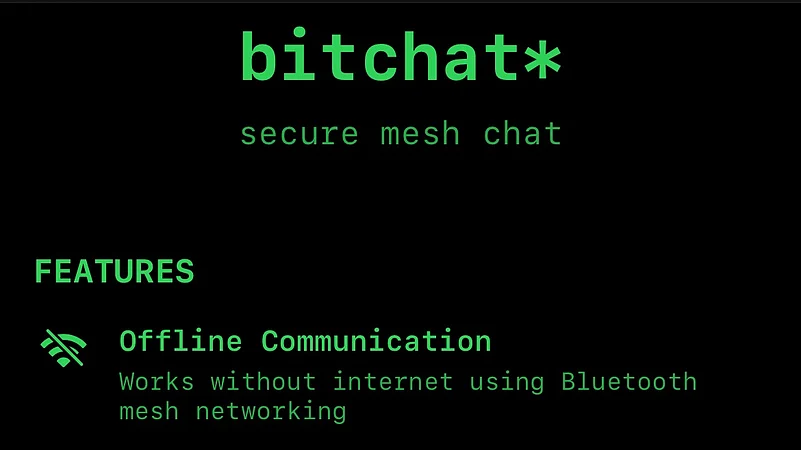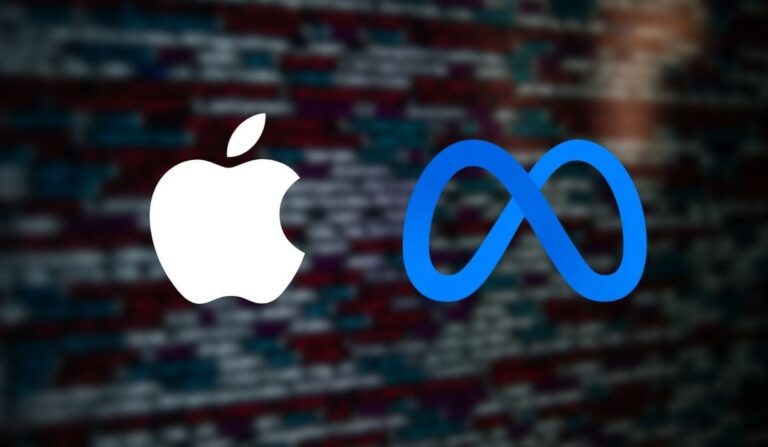
In an increasingly interconnected world, the very idea of a messaging app that operates without the internet seems counterintuitive. Yet, this is precisely the vision that Jack Dorsey, co-founder of Twitter (now X) and Block, is bringing to life with his latest venture: Bitchat. This groundbreaking decentralized messaging protocol promises fully encrypted communication, even in the absence of traditional internet connectivity, offering a compelling alternative for privacy-conscious users and those in areas with limited or censored internet access.
How Bitchat Works: The Power of Bluetooth Mesh Networks
At its core, Bitchat leverages Bluetooth Low Energy (BLE) to create a peer-to-peer mesh network [1]. Unlike conventional messaging apps that rely on centralized servers and internet infrastructure, Bitchat allows nearby devices to act as temporary nodes, relaying messages hop-by-hop until they reach their intended recipient [1, 2]. This innovative approach means that messages can traverse a network of Bitchat users, even if individual devices are not directly connected to the internet. Imagine a chain of communication where each person acts as a mini-relay station, passing on messages to the next person in line until the message reaches its destination. This makes Bitchat incredibly resilient in environments where internet access is unreliable, expensive, or subject to censorship.
Jack Dorsey himself developed a basic version of the app over a weekend, highlighting his commitment to exploring mesh-based services and decentralized communication [2]. The app’s functionality is reminiscent of the 36-year-old Internet Relay Chat (IRC) system, offering both topic-based chat rooms and direct private messaging [2]. This familiar interface, combined with its unique connectivity, makes Bitchat a potentially powerful tool for communication in diverse scenarios.
Prioritizing Privacy and Security: A Core Tenet of Bitchat
In an era where data privacy is a paramount concern, Bitchat distinguishes itself with a robust suite of security features. All messages sent through Bitchat are end-to-end encrypted using Curve25519 and AES-GCM, ensuring that only the intended recipient can read the content [1]. This strong encryption protocol is a cornerstone of its privacy-first design.
Furthermore, Bitchat is engineered to minimize data collection. It does not collect metadata, and user identities are obfuscated, meaning personal information is not tied to communication. Messages are designed to vanish by default after delivery unless explicitly saved by the user, promoting ephemeral communication and reducing the digital footprint [1]. Crucially, users are not required to provide a phone number or email address to use the app, and their activity within the app is not tracked [2]. These features collectively aim to provide a highly secure and private messaging experience, a stark contrast to many mainstream communication platforms.
Range and Real-World Applications: Where Bitchat Shines
While Bitchat’s primary mode of operation is Bluetooth, which typically has a limited range, its mesh networking capability extends its reach. Users can instantly message others within approximately 328 yards (300 meters). However, the true innovation lies in its ability to bounce messages through connected devices, effectively extending the communication range far beyond a single Bluetooth connection [2]. This makes Bitchat particularly useful in scenarios where traditional communication infrastructure is compromised or unavailable.
Consider its potential during internet outages, natural disasters, or in remote areas with unreliable mobile service. In such situations, Bitchat could provide a vital communication lifeline. Historically, similar mesh-based messaging tools like FireChat and Bridgefy gained significant traction during events like the 2019 Hong Kong protests, where authorities were reportedly clamping down on internet access and monitoring private messages [2]. Bitchat offers a similar, if not enhanced, solution for maintaining communication and privacy in challenging environments. Beyond emergencies, it could also prove useful in crowded venues like music festivals or large public gatherings where cellular networks often become congested.
Bitcoin’s Influence: Decentralization as a Guiding Principle
Jack Dorsey has long been a vocal proponent of decentralization, a philosophy deeply embedded in the creation of Bitcoin. While Bitchat doesn’t explicitly reference Bitcoin, cryptocurrency, or blockchain in its whitepaper, Dorsey describes it as a “decentralized, peer-to-peer messaging application” [1]. This echoes the introduction of the Bitcoin whitepaper, which describes Bitcoin as a “peer-to-peer version of electronic cash.” The parallel is clear: just as Bitcoin aims to remove centralized intermediaries from finance, Bitchat seeks to eliminate central authorities from digital communication [1]. This ideological alignment underscores Dorsey’s broader vision for a more open and censorship-resistant digital world.
Currently, Bitchat appears to be an experimental and learning project for Dorsey, without immediate high-stakes attached to its growth [2]. However, given Dorsey’s influence and his consistent advocacy for free expression and against the control of online platforms by governments, Bitchat’s evolution will be worth watching. A future version of Bitchat is even planned to support Wi-Fi Direct, which would further enhance its speed and range [2]. This ongoing development suggests a long-term commitment to building resilient and private communication tools.
The Road Ahead: A New Paradigm for Communication
Bitchat represents a bold step towards a more resilient, private, and decentralized communication landscape. In a world grappling with concerns over data privacy, censorship, and internet accessibility, an app that functions independently of traditional internet infrastructure offers a compelling solution. While still in its early stages, Bitchat has the potential to empower individuals with the ability to communicate freely and securely, regardless of external circumstances. As technology continues to evolve, Jack Dorsey’s Bitchat could very well pave the way for a new paradigm in how we connect and interact.
References
[1] Jamie Crawley. “Jack Dorsey Unveils Bitchat: Offline, Encrypted Messaging Inspired by Bitcoin.” CoinDesk, July 8, 2025. https://www.coindesk.com/tech/2025/07/08/jack-dorsey-unveils-bitchat-offline-encrypted-messaging-inspired-by-bitcoin
[2] Abhimanyu Ghoshal. “Jack Dorsey unveils Bitchat, a new offline messaging app.” New Atlas, July 8, 2025. https://newatlas.com/consumer-tech/jack-dorsey-bitchat-messaging-app-offline-access-bluetooth/






